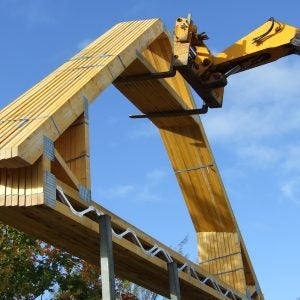The output, relating specifically to EPF member countries, totalled 59.8 million m3. Consumption of wood-based panels followed a similar pattern, with a reduction of 7% (60.8 million m3) compared to 2021.
About 200 representatives from the global wood-based panels industry were given the figures for the first time at the EPF AGM and conference in Santiago de Compostela on June 23.
The latest stats – contained in the newly-published EPF Annual Report 2022-2032 – follows the earlier release in May of provisional figures at the Interzum exhibition in Germany.
Clive Pinnington, EPF managing director, told delegates that essentially 2022 H1 had an “OK” performance, but H2 was “not quite a catastrophe, but nearly”, with the furniture industry in particular suffering in H2 with a 5% reverse.
European particleboard production reduced 6.9% in 2022 to 32.1 million m3.
The EPF said particleboard production capacity increased by 1% in 2022,with a 3.3% rise expected in 2023 and afterwards.
MDF suffered a more severe production output decline in 2022,with a 9.3% dip to 12.5 million m3, though it has to be noted that the comparison year (2021) had seen a sharp rise in output of 7.7%.
The OSB sector saw a 10.7% decline in production to 6.4 million m3, while softboard (predominantly woodfibre board insulation) suffered an 8.9% reverse to 5.1million m3.
European plywood production was down by 2.5% in 2022 to 3.1million m3.
Consumption of wood-based panels in the key furniture industry declined by 1% in 2022. So, the furniture industry consumed 48% of all wood-based panels last year (down from 49% in 2021).
A longer report on the conference will appear in the next issue of WBPI.






